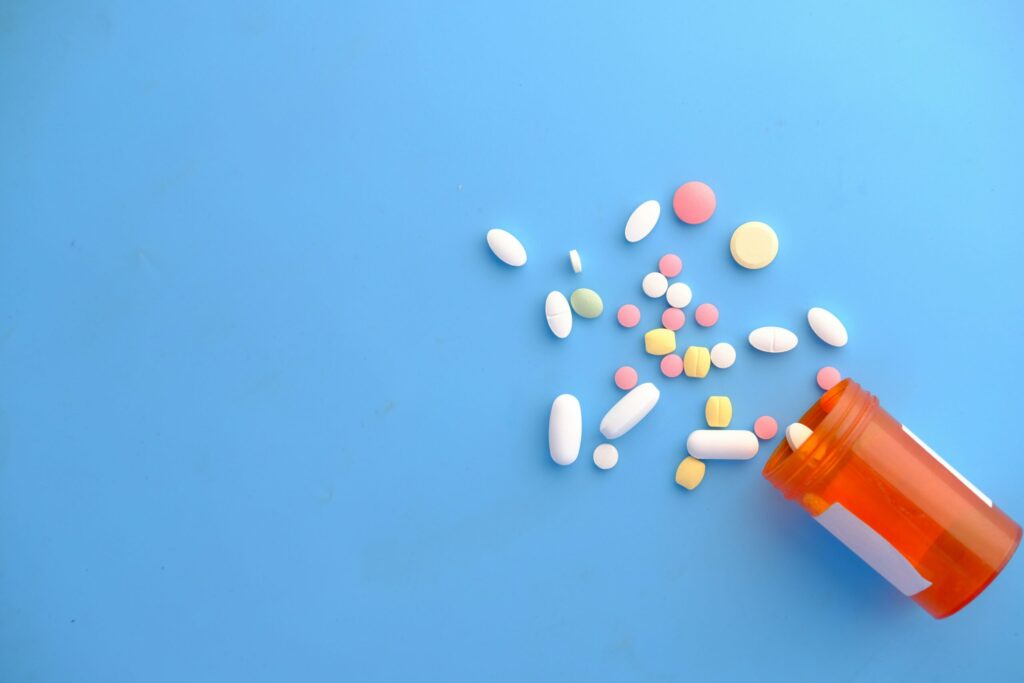The Relationship Between Hormonal Birth Control and Vulvodynia
Is the hormonal birth control mini pill better than the regular pill?
If you have been following along, this is the third part of our hormonal birth control and vulvodynia series. First, we covered how combination methods of birth control (containing synthetic forms of both estrogen and progesterone) could lead to vulvodynia. We then explored if there is a risk of developing vulvodynia after the insertion of a hormonal intrauterine device IUD). In this post, we will delve into the relationship between the progesterone only birth control pill, also called “the mini pill,” and vulvodynia. As a quick refresher, vulvodynia is pain on the vulva, or external genital tissue. For more information about vulvodynia, check out this post on our website.
Similar to the hormonal IUD, the mini pill works as a contraceptive by thickening cervical mucus and thinning the lining of the uterus to prevent a fertilized egg from implanting. Similar to the IUD, it is an expected side effect to experience spotting in the first few months of use1. Interestingly, some women will no longer ovulate, while some will continue to, about 4 in 10, according to the American College of Obstetricians and Gynecologists1.
When considering how the mini pill impacts the vaginal environment, we can think about the fact that the mini pill contains progestins (the synthetic form of the naturally occurring hormone progesterone) that are also in the combined methods of birth control, which we know can lead to undesirable effects on the vaginal and vulvar tissue from decreased circulating androgens (sex hormones)2,3,5,6,10,11. However, this becomes more complicated as there are several different types of progestins that can be used in your hormonal birth control that have different effects on the body depending on its estrogenic, androgenic, or antiandrogenic activity4,5,10.
What does this mean? All oral hormonal contraceptives will lower the overall amount of circulating free androgens- but to what extent varies, and has not been studied well. There is more to this story that science is still trying to understand, so in the meantime, if you start a new hormonal birth control and start to notice any vaginal dryness, irritation, or vulvar/vaginal pain, reach out to your referring provider to discuss another option as soon as possible in order to stop a chronic pain cycle from beginning.
As the theme has been for this entire series, research is lacking on quantity and quality of studies researching the impacts specifically of progesterone only pills and vulvodynia. While some studies have not found any negative effects on sexuality, including pain with sex, with the mini pill compared to the regular pill4,7,8, newer studies specifically looking at vulvodynia have found associations. A recent study of over 2,000 women found an increased risk for development of vulvodynia in women taking combined hormonal birth control pills, as well as progesterone only pills, compared to controls who were not using birth control. The association was stronger with the combination pill compared to the progesterone only pill9 (also sometimes referred to as POPs). Until science has caught up to what many patients have already experienced when starting a new hormonal birth control method, it is best to treat your symptoms as soon as they come on and prevent the negative impact vulvodynia can create on your quality of life and interpersonal relationships.
At Femina Physical Therapy, all of our physical therapists have specialized training to address the musculoskeletal components of your vulvar pain and will work with your other healthcare providers in a collaborative manner to maximize symptom-relief and improve your quality of life. Reach out to our team to get started.
Interested to learn more? Click here to read Part 1 and Part 2.
Resources:
- https://www.acog.org/womens-health/faqs/progestin-only-hormonal-birth-control-pill-and-injection#:~:text=How%20do%20progestin%2Donly%20pills,does%20not%20do%20so%20consistently.
- Aerts L.,Pluchino N., Hormonal contraception and vulvodynia: an update, GREM Gynecological and Reproductive Endocrinology & Metabolism (2021); 03/2021:156-161 doi: 10.53260/GREM.212034
- Bohm-Starke N, Johannesson U, Hilliges M, Rylander E, Torebjörk E. Decreased mechanical pain threshold in the vestibular mucosa of women using oral contraceptives: a contributing factor in vulvar vestibulitis?. J Reprod Med. 2004;49(11):888-892.
- Caruso, S., Palermo, G., Caruso, G., & Rapisarda, A. M. C. (2022). How Does Contraceptive Use Affect Women’s Sexuality? A Novel Look at Sexual Acceptability. Journal of clinical medicine, 11(3), 810. https://doi.org/10.3390/jcm11030810
- Casado-Espada NM, de Alarcón R, de la Iglesia-Larrad JI, Bote-Bonaechea B, Montejo ÁL. Hormonal Contraceptives, Female Sexual Dysfunction, and Managing Strategies: A Review. J Clin Med. 2019;8(6):908. Published 2019 Jun 25. doi:10.3390/jcm8060908 https://www.ncbi.nlm.nih.gov/pmc/articles/PMC6617135/
- Casey P.M., MacLaughlin K.L., Faubion S.S. Impact of Contraception on Female Sexual Function. J. Women’s Heal. 2017;26:207–213. doi: 10.1089/jwh.2015.5703
- de Castro Coelho F, Barros C. The Potential of Hormonal Contraception to Influence Female Sexuality. Int J Reprod Med. 2019;2019:9701384. Published 2019 Mar 3. doi:10.1155/2019/9701384
- Graham CA, Ramos R, Bancroft J, Maglaya C, Farley TM. The effects of steroidal contraceptives on the well-being and sexuality of women: a double-blind, placebo-controlled, two-centre study of combined and progestogen-only methods. Contraception. 1995;52(6):363-369. doi:10.1016/0010-7824(95)00226-x
- Kiesner J, Bittoni C. Vulvodynia: Risk Associated with Vulvar/Vaginal, Psychological and Physical Side Effects of Oral Contraceptive Use, The Journal of Sexual Medicine, Volume 21, Issue Supplement_2, March 2024, qdae002.046, https://doi.org/10.1093/jsxmed/qdae002.046
- McMahon L, Handy A, Jones A, Mijares S, Noon A, Meston C. The Effect of Oral Contraceptive Pill Type on Vulvovaginal Atrophy, The Journal of Sexual Medicine, Volume 20, Issue Supplement_2, May 2023, qdad061.096, https://doi.org/10.1093/jsxmed/qdad061.096
- Traish AM, Vignozzi L, Simon JA, Goldstein I, Kim NN. Role of Androgens in Female Genitourinary Tissue Structure and Function: Implications in the Genitourinary Syndrome of Menopause. Sex Med Rev. 2018;6(4):558-571. doi:10.1016/j.sxmr.2018.03.005 https://www.sciencedirect.com/science/article/pii/S2050052118300465#bib18
More Articles in This Series
{modulepos position=”birthcontrol”}

